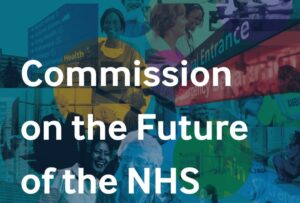
The BMJ’s editor-in-chief urges royal colleges to improve transparency on payments
Academy of Medical Royal Colleges and its members urged to establish a standard for transparently disclosing payments
The BMJ’s editor in chief is urging the Academy of Medical Royal Colleges and its members to establish a standard for declaring payments they receive from industry and patient groups in the wake of a recent investigation by The BMJ into such payments.
The investigation, published by The BMJ in July,* found that royal colleges, responsible for doctors’ and some other healthcare professionals’ education and training, had received more than £9m in payments from drug and medical device companies since 2015 but that they didn’t always disclose these payments publicly in their annual reports.
In an open letter to the institutions Kamran Abbasi says: “Transparency is the absolute minimum for managing conflicts of interest” and that “royal colleges shouldn’t rely on industry transparency initiatives which many people agree don’t go far enough.”
Royal colleges should “take the lead and disclose industry funding in a comprehensive and standardised manner,” he adds. This is something the Academy of Medical Royal Colleges, the membership body for the medical royal colleges and faculties, could coordinate, he says.
There is currently no common guidance for medical colleges to follow regarding comprehensive transparency of payments received from industry and other contributors.
Abbasi says greater transparency would increase trust in the work of the royal colleges, enabling informed discussion by their members and the public “about how such payments should be governed and under which conditions they should be received – if at all.”
In the letter Abbasi says, “Evidence shows clinicians’ prescribing habits are influenced by industry marketing, which is why the College of Psychiatrists of Ireland stopped taking sponsorship from drug companies in 2012.”
The BMJ’s investigation had to rely on industry databases to highlight some of the payments from drug and medical device companies received by royal colleges, but these offer only a partial glimpse of the money accepted, why it was paid, and what it was used for.
Payments are listed under broad categories, data are deleted after three years, and payments from other industries, including food, software, data analysis, and medical equipment companies, aren’t tracked.
What’s more, when The BMJ contacted colleges to check that the figures it had calculated were correct, many had difficulty in confirming the amounts. Only the Royal College of Anaesthetists was able to send The BMJ a comprehensive list of payments received from each company.
The investigation found that the biggest recipients of money from drug and device companies between 2015 and 2022 were the Royal College of Physicians and the Royal College of GPs, which each received around £3m. Last year the Royal College of General Practitioners announced plans to publish a list of full payments from sponsors by 2024.
In May the Department of Health and Social Care for England announced a public consultation on mandatory disclosure of industry payments to the healthcare sector, similar to the system the US has under the Physician Payments Sunshine Act.
[Ends]16/08/2023
Notes for editors
New story: Royal colleges are urged to be more transparent on industry payments Doi: 10.1136/bmj.p1858
Open letter: Royal colleges must be more transparent on payments from industry Doi: 10.1136/bmj.p1864
*Published investigation: Medical royal colleges receive millions from drug and medical devices companies Doi:10.1136/bmj.p1658
Journal: The BMJ
Funding: BMJ Investigations Unit
Link to Academy of Medical Sciences press release labelling system
http://press.psprings.co.uk/
Externally peer reviewed? No
Evidence type: Opinion/Open letter
Subjects: Conflicts of interest





